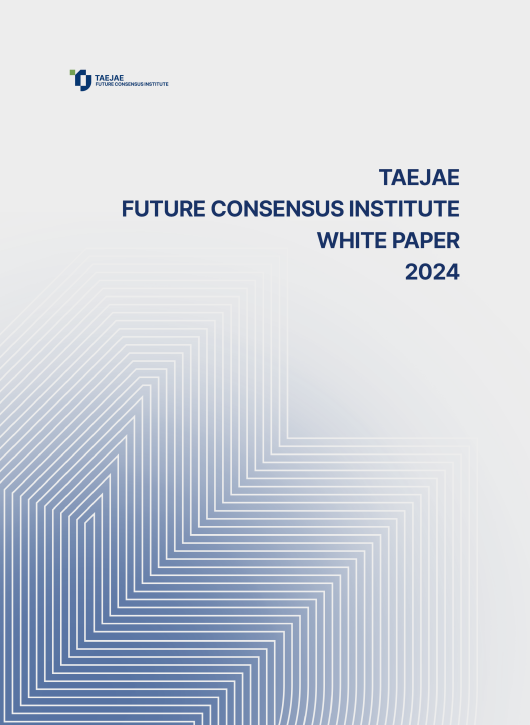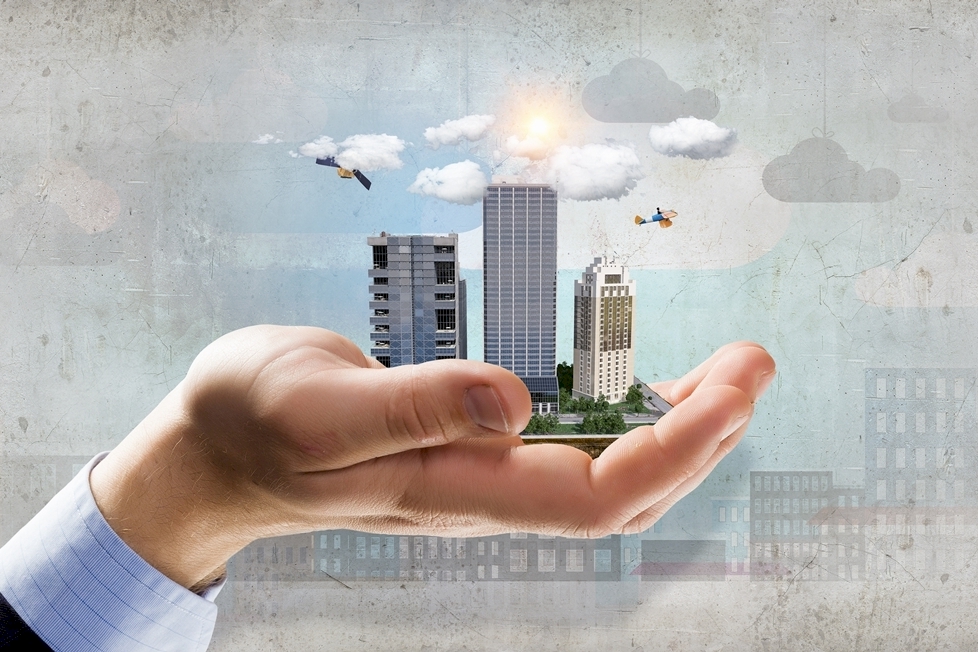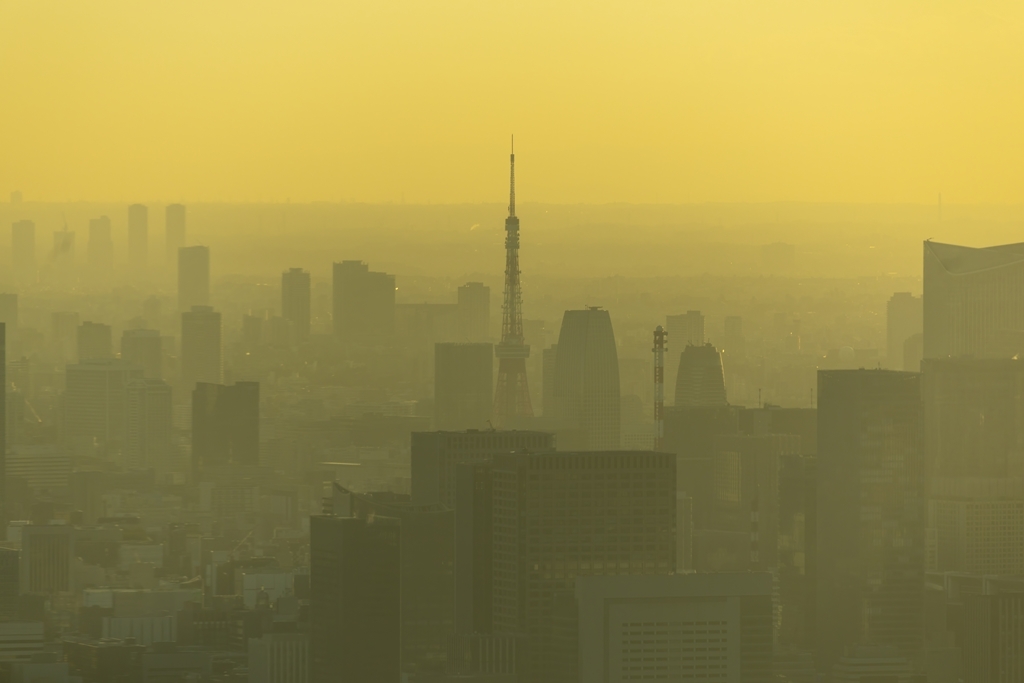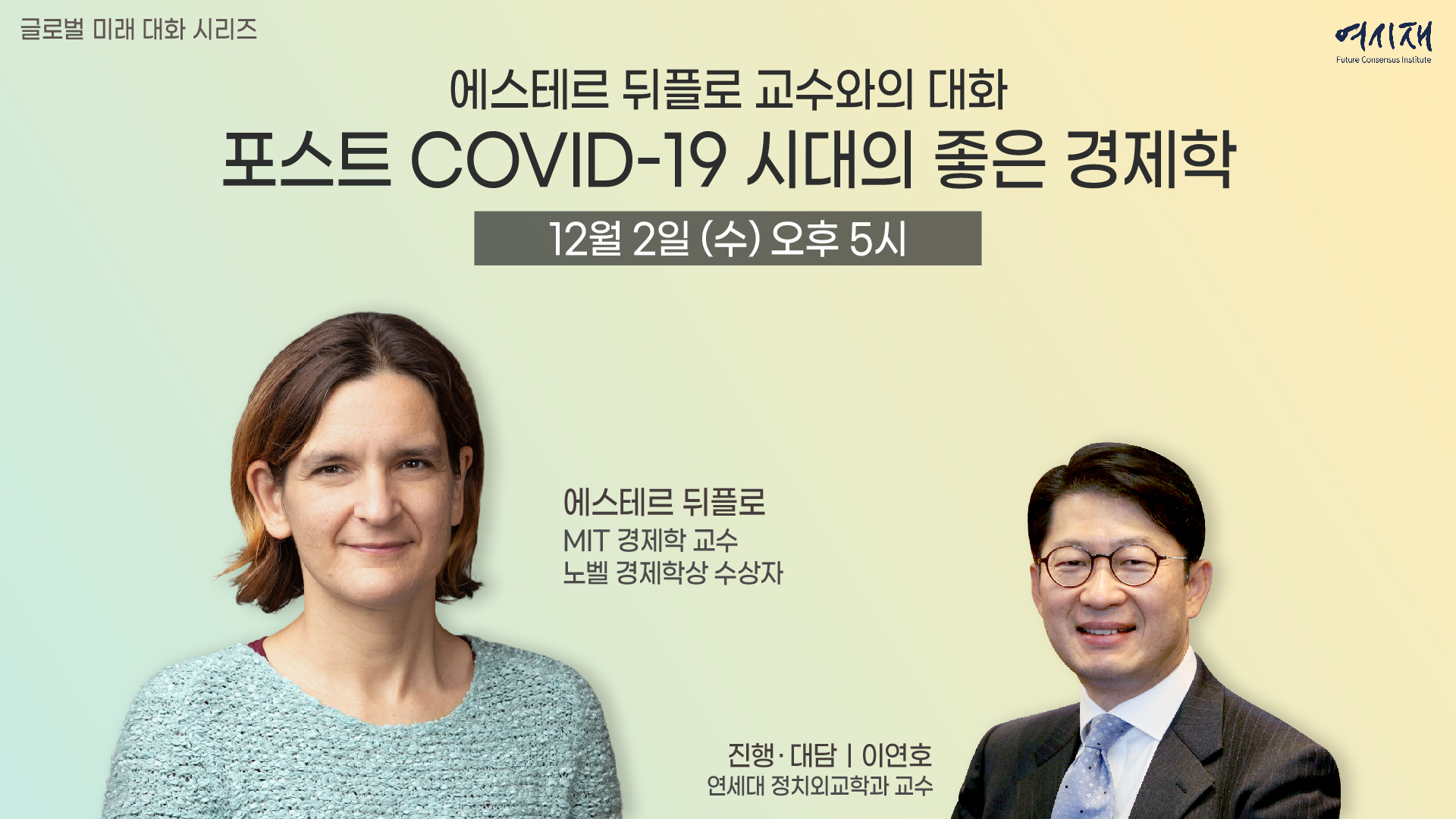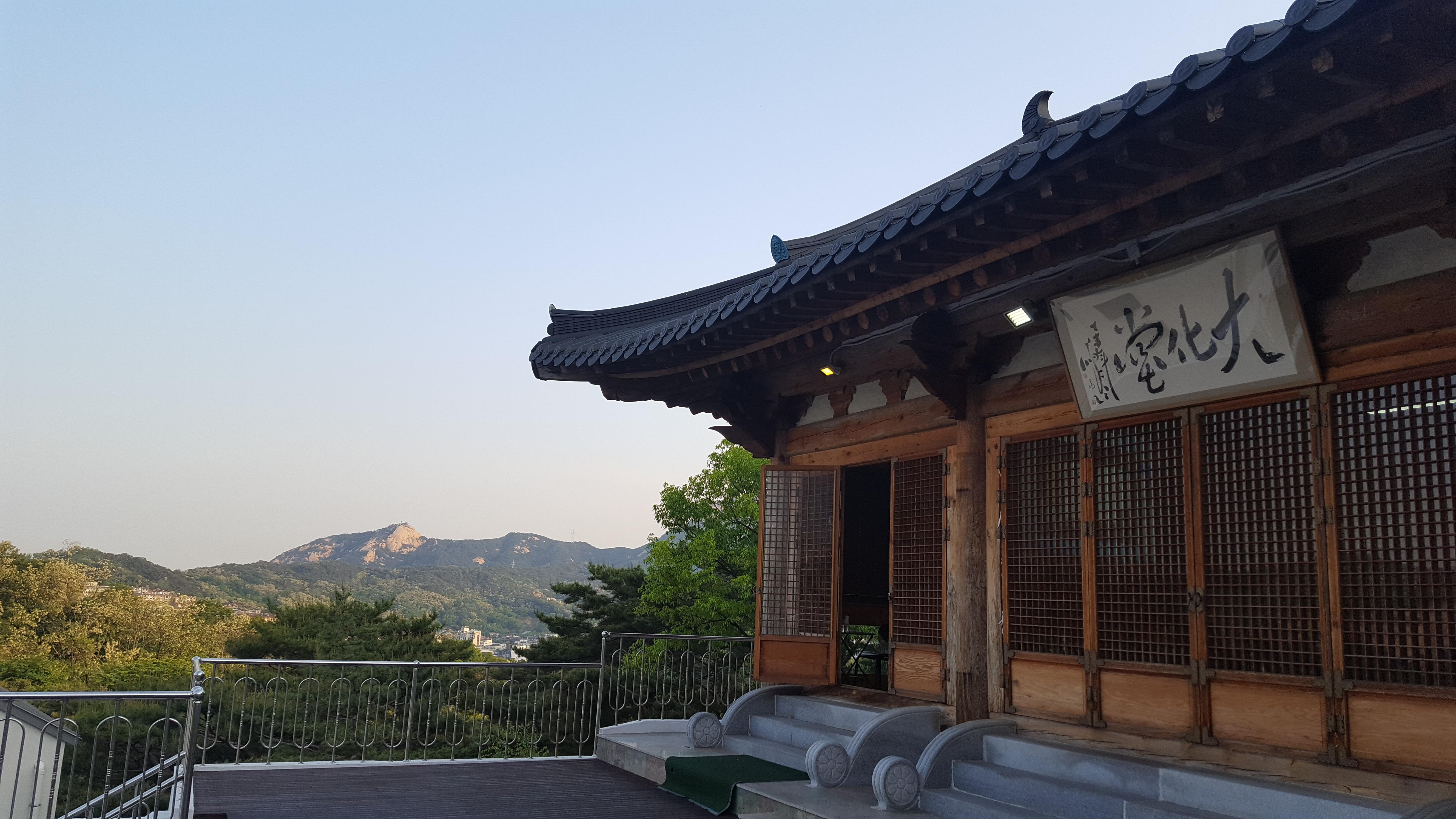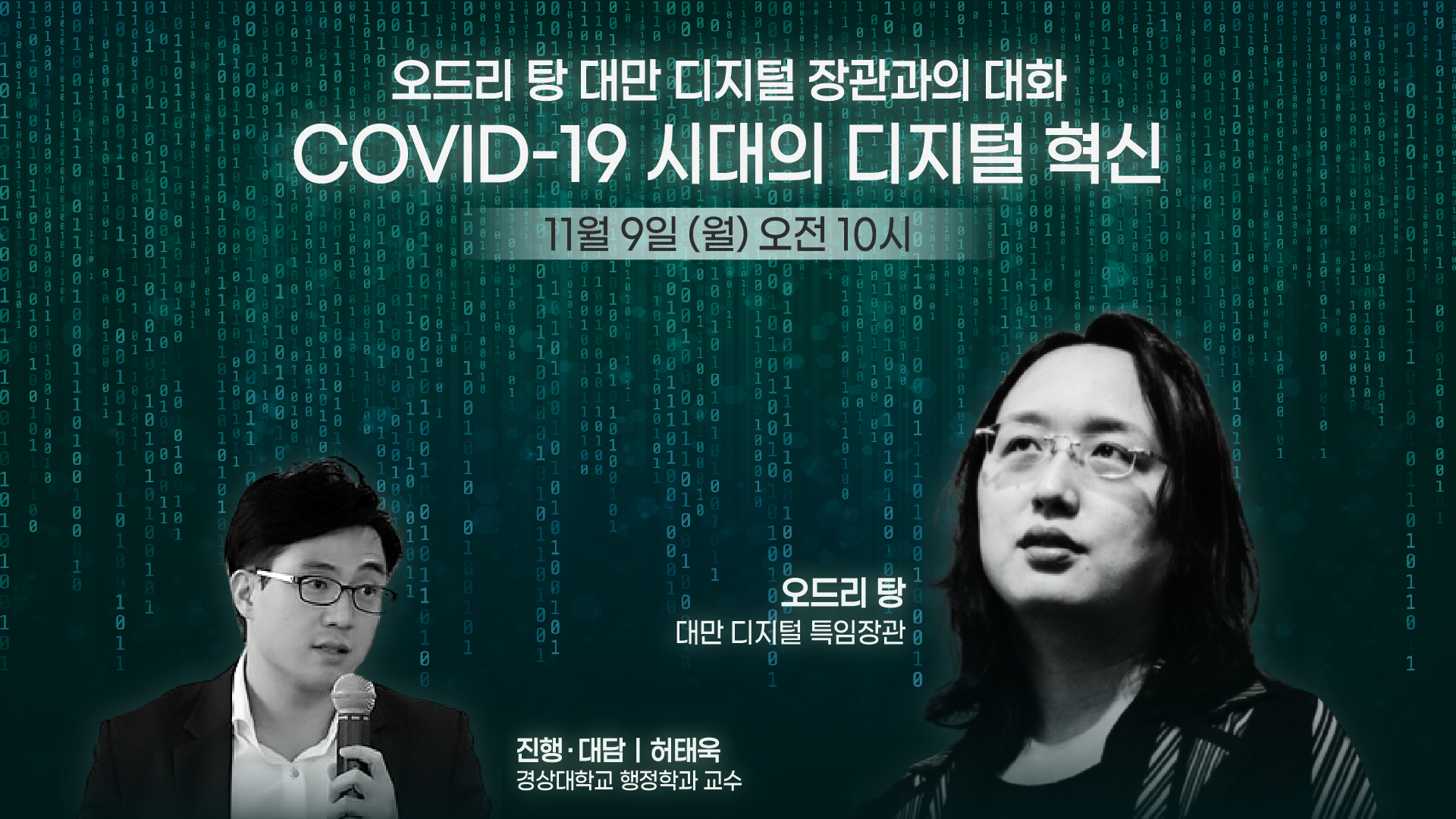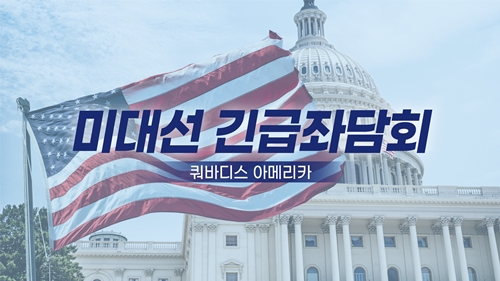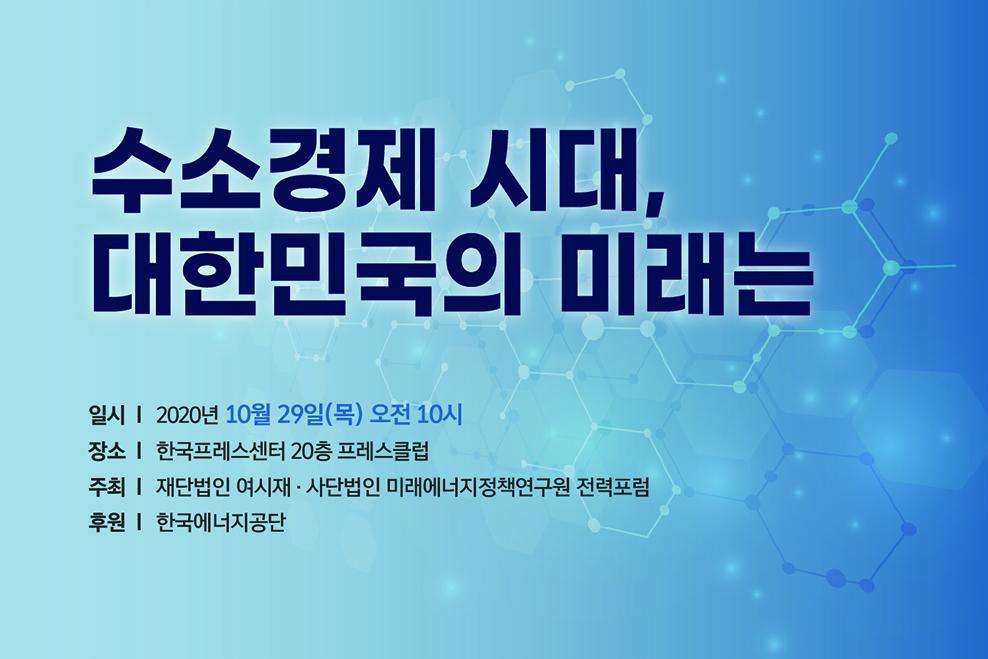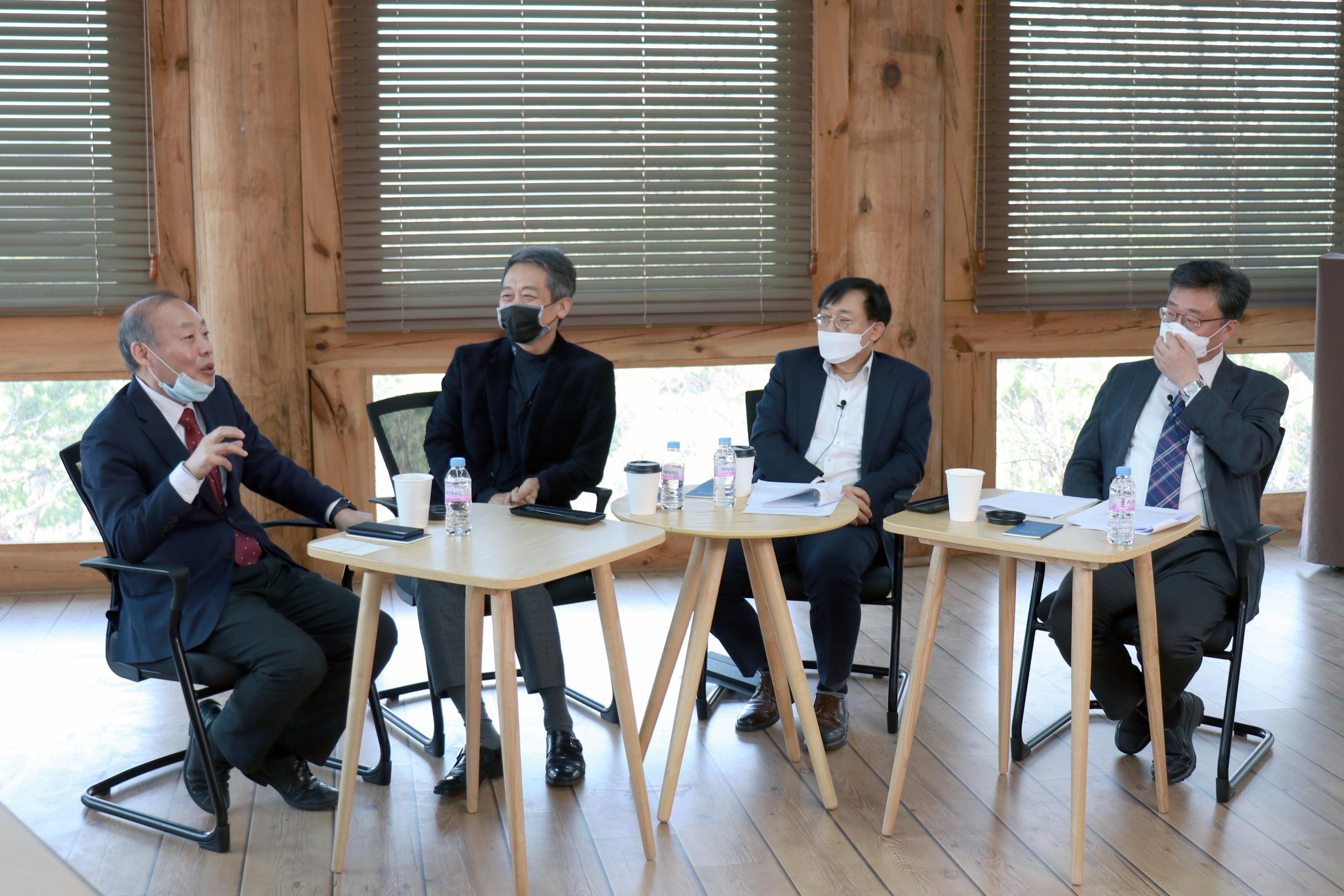Please join Yeosijae as we build a brighter future for Korea. Create your account to participate various events organized by Yeosijae.
- Insights
- |
- Global Order and Cooperation
[Discussion/COVID-19 ②] What do we need to prepare?
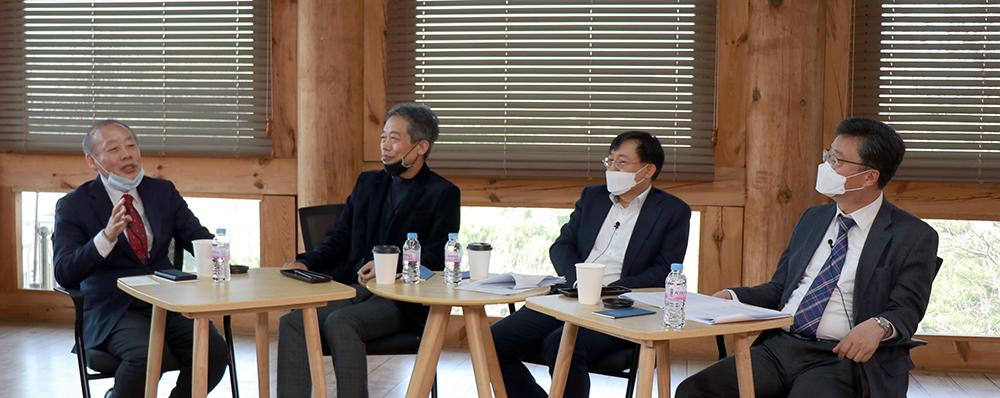
In all aspects, South Korea could be in the best position to lead the post-COVID-19 international system
Now is the best time to eliminate economic bubbles and focus on innovative investment
When will the COVID-19 outbreak subside, and how? What will things look like in the ‘post-COVID-19 era’? Right now, the important things are quarantine and providing living assistance. This is where the state’s administrative power should be concentrated. However, what is to come may be even more important. The COVID-19 pandemic will bring about broad and profound changes across the world. It will probably have a severe impact on societies, the global economic order, national governance and even international relations. Normal will become post-normal, and eventually we will face a new normal. We must prepare for this step by step, and this unknown path may become a great opportunity for South Korea. How will this happen?
Over the past few years, the Future Consensus Institute (Yeosijae) has pointed out that the established order of industrial civilization has reached its limits, and Fhe foundation has conducted a series of research looking towards the future. Based on the knowledge accumulated during this process, Yeosijae plans to continue to release content tailored towards these new developments. As part of these efforts, Yeosijae held a discussion forum to evaluate the current situation and examine the challenges that states and civic society are facing. The details of this discussion will be released in two parts.
|
(Program) |
|
Participants |

Preventing transmission in the Southern Hemisphere demands a response on a global level
Hong Yun-chul = It is usually correct to say that we must learn how to live alongside the virus, but I wonder if this applies to COVID-19. With a disease like tuberculosis, it’s possible to create a society that lives with the disease. Since it’s not highly contagious, there is plenty of time for a medical response even while living alongside it. However, it is difficult to live alongside diseases that are highly contagious and highly fatal. The UK has stated that building herd immunity (70%) is crucial since COVID-19 is difficult to contain, but can we accept this? The optimal policy has to be stamping the virus out as soon as possible. What is important is that although the virus has spread across the Northern Hemisphere, we are fortunate that this part of the world is home to the majority of developed countries so the situation can be salvaged. However, the Southern Hemisphere does not have a response plan, so what we need right now is an all-out response on a global level. This means something like applying the South Korean model to the Southern Hemisphere. South Korea’s initial response also failed due to excessive optimism, but a model with a stronger containment policy in the early stages combined with South Korea’s response plan has the potential to be the most successful in the world.
We must change the density of large cities
Kim Won-soon = People will only feel safe when a vaccine and treatment have been developed. While it is important to develop a vaccine before herd immunity is developed and endeavor to reduce the time it takes to do so, what should we do until such a solution is available? I believe that the lessons for humanity while wrestling with the virus involve bigger, more long-term issues. This can be viewed as nature revolting against the way we have lived until now. Humans have been living in an unsustainable manner. We are the worst predators among all the species on Earth. This must serve as an impetus to change our unsustainable patterns. I think COVID-19 will serve as a lesson for humanity in what not to do. People talk about blessings in disguise. We need to change the way people are densely concentrated in large cities. Moving in crowds and conducting things face-to-face when there is no need to. More meetings should be conducted online, and education and medical systems should also move in that direction. The virus is a catalyst for these trends that should have already been taking place. Of course, there will be trial and error since we are heading down a path we have never taken, and we need to properly learn from this trial and error. That’s the only way we can prevent making even greater errors in the future.
We should learn from robot delivery in Wuhan
Kim Hee-su = Policies such as working from home are becoming more common in South Korea, but while China is largely the reason behind this situation, the country has also served as an example of some of the best ways to respond. When the Wuhan region was completely shut down, a number of solutions using IT and AI emerged. Necessities such as medical supplies were delivered to people via robots. These were developed and implemented in a very short period of time, and it is something we could learn from. I also believe the virus will serve as an opportunity to further promote telemedicine and online education. While the need for this had already been felt, little progress had been made due to vested interests within systems that operated using existing methods. But now we could see a lot of solutions that overcome the need for face-to-face interactions using innovative new technologies. This is something that China is demonstrating. I believe we must use this as an opportunity to improve our systems and make a confident response.
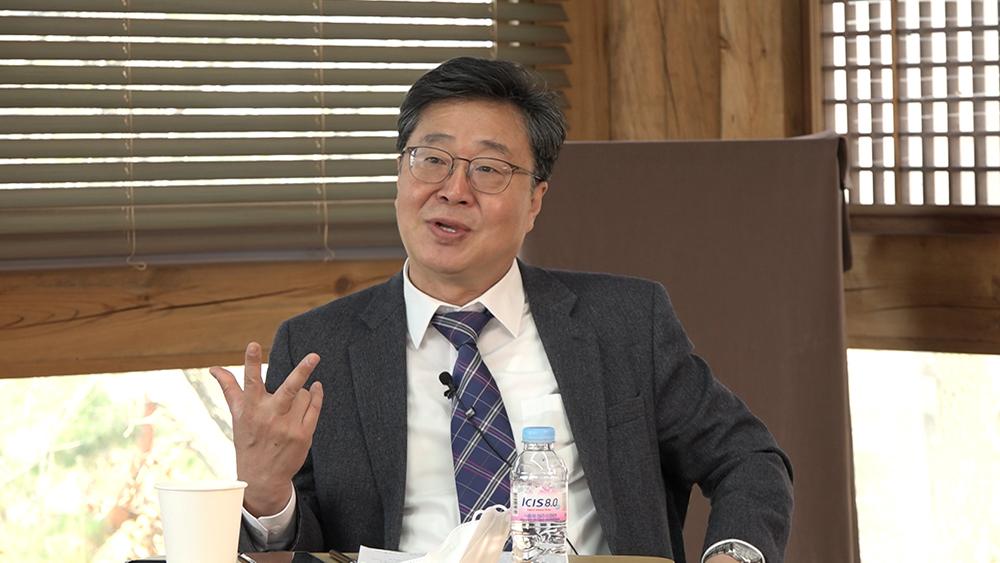
As the only country equipped with non-face-to-face technologies, this is an opportunity for South Korea to demonstrate its unique competitiveness
Jeon Byeong-jo = Another blessing in disguise is that this is an opportunity to eliminate bubbles in the economy. A massive bubble has formed since (the global financial crisis in) 2008. The world has not been living in a normal fashion, and the virus could have the positive effect of eliminating this. Second, I think we need to use this as an opportunity to take a deeper look at Fourth Industrial Revolution technologies as not simply tools of convenience, but something essential. Competitiveness in this field is going to determine a nation’s standing in the future, and COVID-19 could be an opportunity to take advantage of this. Even if a county has the technology, it is difficult to build an omnidirectional system like we have in South Korea. South Korea is really the only country equipped with non-face-to-face technologies. In the US it would be difficult to build something like the living and treatment support centers mentioned earlier. We are the only country that has this kind of technology. This means the virus presents an opportunity for South Korea to demonstrate a unique kind of competitiveness. This opportunity will arise if the virus persists through March and April. Medicine and bio technologies are raising South Korea’s national standing. If we are able to effectively leverage this unique advantage to weather the storm, we will be able to demonstrate our expertise once the storm is over.

We stayed true to our values, which is a big difference from China
Kim Won-soo = You spoke about a unique competitive advantage, but I believe South Korea also has soft power when it comes to values regarding how technology is used, and this soft power is more appealing to the world than that of China. South Korea used technology in a way that preserved personal freedom and encouraged voluntary participation from the public, while China used it for control and oppressing freedom and human rights. That’s a huge difference. South Korea has the potential to demonstrate a high level of distinctiveness when it comes to both technology and values related to how such technology is used. The international response also has to be accompanied by efforts to minimize the economic impact. World War II broke out in the wake of the Great Depression, and protectionism emerged as part of that process. That caused the global economy to collapse and ultimately led to war. The world must ensure that it does not follow the same path again this time. South Korea is in a position to defend free trade from the moral high ground. We can also speak about aspects of technologies that put values and people first. Even if we are faced with a tough economic situation, we can maintain an open-door policy while heading off attempts to revert back to the past.
Kim Hee-su = Moving forward, it will be necessary to put in place controls while also upholding free democracy. Early detection, prevention and confirming cases will ultimately require gradual access to and use of personal information. China has strong state controls and is moving towards autocracy, and the country is taking full advantage of this to resolve the problem. If South Korea wishes to serve as a model to others while making use of the country’s ICT infrastructure in a way that does not infringe on freedom, we will need to reach a social consensus on the use of certain types of personal data. This consent can then be used for matters such as preventing contagious diseases and tracing contacts. If this is not possible, the public may have freedom but we would be left unable to make proper use of technological progress.
The enforcement degrees under the three new data laws should lean in the direction of making greater use of personal information
Kim Won-soo = When we talk about cybersecurity issues, there is currently no global consensus on whether state controls are more important or privacy and freedom should take precedent. There is a complete absence of international guidelines. The need to adjust the balance between these values has become more pronounced due to the virus. South Korea is in the best position to find a middle ground. Finding a way to reach agreement on this will be the most important issue when we think about an international governance system, and South Korea is in the best position to help both sides come to such agreement. A democratic system takes more time, but it has many advantages over unilateral methods. South Korea can play a leading role in reaching agreement on this.
Kim Hee-su = South Korea recently enacted three new data laws, and the enforcement decrees under such laws are currently being drafted. I hope that this situation will serve as an opportunity to draft these laws in a way that enables greater use of personal information. When it comes to personal data, I think we should use this as an opportunity to put policies in place that impose regulations only when harm has occurred rather than regulatory restraints in advance.
Telemedicine does not benefit society, and is likely to cause the healthcare system to collapse
Hong Yun-chul = Seoul National University Hospital has built a living and treatment support center in Mungyeong, North Gyeongsang Province. The facility has systems for non-face-to-face X-rays, on-site diagnosis and guidance, and even the delivery of medication. With the granting of temporary permission, we are seeing telemedicine being fully implemented. When people see this, they may wonder why we shouldn’t move even further in this direction if the technology is already there, but it is important that the transaction benefits both the service provider and the recipient. It is unacceptable if one party is actually harmed by the service. Telemedicine does not benefit society. Most of the opposition to telemedicine comes from small clinics in regional areas. The problem is that, as you can see from the words ‘tele’ or ‘remote,’ these services bypass local hospitals. This would cause the healthcare system to collapse. Telemedicine is only possible if regional communities have solid underlying structure such as facilities capable of giving clinical diagnoses. That is why I think the term ‘telemedicine’ is not a good one. It is fine to have telemedicine technologies, but they must be systems that enable non-face-to-face treatment to take place in regional areas. It should be developed into treatment through community platforms. If doctors in regional areas are competent and take good care of patients, they could screen a substantial amount of them, but discussing telemedicine without giving any thought to the healthcare system as a whole is not viable in practice. It’s a distortion of the healthcare system. People who support telemedicine talk about the technical applications, but without taking the healthcare system into consideration, telemedicine would not only fail to be accepted but end up destroying healthcare.
Kim Won-soo = The issue of telemedicine causing greater concentration at large hospitals needs to be looked at in relation to the lessons we have learned from the virus. This is the same context as people living together in large cities. Since people live in highly dense areas, they came to think that big is better. But with the virus we need to realize that there is sometimes greater beauty in smaller things.
Hong Yun-chul = Many cases occurred in regional areas. We need to move towards a system that can identify cases in regional areas through technology such as wearable devices. There is no way to manage patients in these regions at central university hospitals.
Kim Hee-su = Even if telemedicine is possible from a technical standpoint, people will still ask “Why should I do that when there is a hospital just down the road?” That’s why some people said that online education and telemedicine can’t succeed in South Korea. However, COVID-19 has taught us that there are some benefits to not doing things face-to-face, and that no single hospital can accommodate everyone, so I think this might change the way people view the issue.
In times like this, the state has to justify its existence
Jeon Byeong-jo = Until now, people have always thought of concepts like basic income as progressive ideals, but on this occasion it was Trump who first put forward the idea. It is clear that an emergency response is necessary, but this cannot last indefinitely. At the moment, the financial market has managed to save people affected by the shock by supplying capital. It would be good if these kinds of emergency responses were large in scale. In fact, in times like this the nation exists to spend money on the weakest areas that need it the most. Among the OECD nations, Italy’s economy has remained the same for decades. Debt reached 140% without any growth in the economy. In contrast, the figure for South Korea is around 41%. If the pandemic continues for a long time, support will be required at the very least. What is the point of economic growth? In times like this, the state has to show us why growth was necessary and justify its existence. If this situation lasts for two years, the government will have to provide support to prevent vulnerable groups falling into ruin, even if that means taking on extreme fiscal debt. That’s why we are told to spend. South Korea spends 50 trillion won a year on defense. The purpose of that spending is to prevent people from dying if a war breaks out. But who would go to war at a time like this? We need to take bold measures, and thinking only in terms of support policies for low-income households is delusional. It has to be economic policy and economic stimulus. There are many ways to stimulate the economy, such as expanding the budget, driving growth or reducing taxes. Even if South Korea spent 100 trillion won for every 50 trillion won over the course of a year, the level of debt would only increase by 2%.
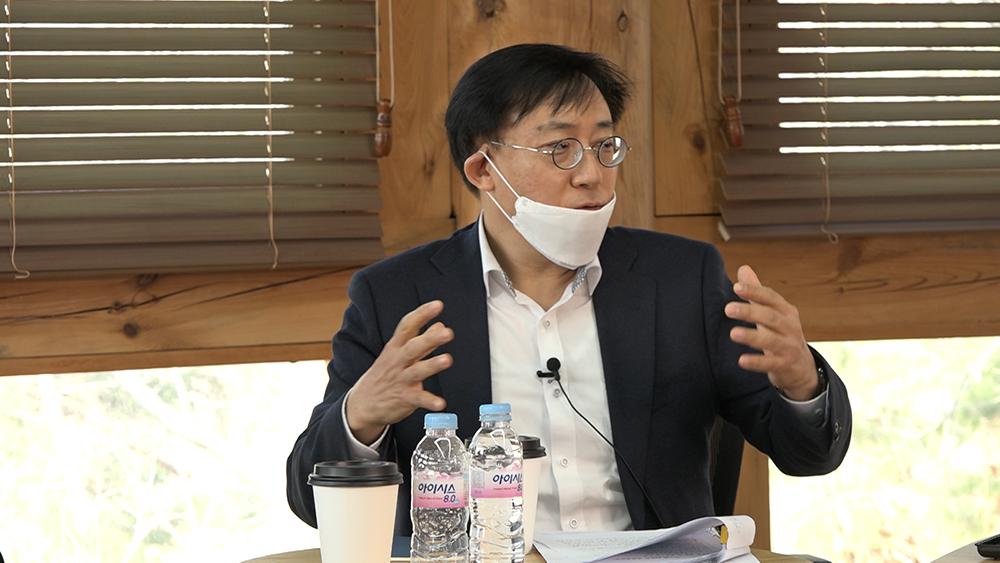
We must ensure that more capital is put into innovative investment
Jeon Byeong-jo = This is the best time for South Korea to reform its existing industrial structure. At least 30% of the production base should be at home. Smart factories are what makes this possible. We should lay a foundation for all this as soon as we can. We need innovative investment that will help translate our infrastructure and economic competitiveness into economic power. While it is important to subdue the virus, we should also endeavor to create an economic system that can exist alongside the virus, provide bold support for disaster relief and make innovative investments.
Kim Hee-su = The first victims of the sudden economic shock are the self-employed, part-time workers and those in the service industry, and SMEs are also being hit hard. Support should be concentrated on those who have directly suffered as a result of COVID-19. It would be ineffective to offer the same amount to everyone. Financial support is also ineffective if it fails to translate into consumption. Support has to be targeted. The US can print as many dollars as they like without any repercussions, but it’s a different story in South Korea. South Korea has greater fiscal room to maneuver in comparison, so we need to save people in trouble even if it means taking on more national debt. Funds that have been injected into populist policies should be recalled and used for the innovative investment we need as a society, thereby changing the constitution of the economy. South Korea’s economic situation wasn’t great even before COVID-19. We had the lowest growth rate among OECD countries. COVID-19 struck at a time when South Korea’s potential growth rate had already fallen to a low level, and we were facing problems such as population aging and inequality. We need to provide priority support to those in tough circumstances while boldly injecting funds into innovative investment for the future and using targeting to prevent any leaks.
Jeon Byeong-jo = The method of offering support through vouchers tends to create a discount market. We need to consider offering refunds via receipts after people spend money. This is possible because we already have a system of cash receipts in place.
Kim Hee-su = Using blockchain is one way to determine who has spent money.
“We won’t be able to overcome the crisis unless we can eliminate political considerations”
Kim Won-soo = National debt in South Korea has not increased since the 2008 financial crisis, while the level of personal debt has risen. The virus struck at a time when individuals have a very limited ability to absorb shocks, so this is going to be a tremendous shock for the public. At a time like this, the state needs to play a more active role. And in doing so, improvements need to be made to the areas where people feel vulnerable. This is why targeting is necessary in order for it to work properly. In other words, the money handed out needs to circulate. Money is far less effective if it doesn’t circulate. The system needs to be well-designed, even down to the smallest details. And while it is true that this applies to all crises, it won’t work unless politics is taken out of it. Political considerations have to be removed from the equation. But I think this is becoming tangled up in politics because most countries are currently in the middle of short-term election cycles. We need to look beyond political considerations and have experts in each field responsible for that field, with quarantine experts handling quarantine and economic experts handling the economy. The political arena may also become more free at this time. Let’s try to trim off the political fat and give more weight to experts. There are countless examples of the South Korean public pulling together through voluntary cooperation. We certainly have the capacity.
Senior citizens over the age of 75 need to be included within communities
Hong Yun-chul = It is precisely the weakest spots that have been struck by COVID-19. A lot of cases have occurred in mental hospitals and nursing homes. These places tend to be separate from society rather than integrated, and this is where the disease spread. The pandemic broke out in places that society fails to take care of, places that have been pushed out of society. When it comes to talking about societies of the future and new civilizations, I believe the virus shows us the direction that communities should be moving towards. The elderly population is rapidly increasing. We talk about an inclusive society, but if we endeavor to create a society that is inclusive of senior citizens, where people over the age of 75 can also be a part of communities, these kinds of problems would not occur. It is important to create an inclusive society within communities.
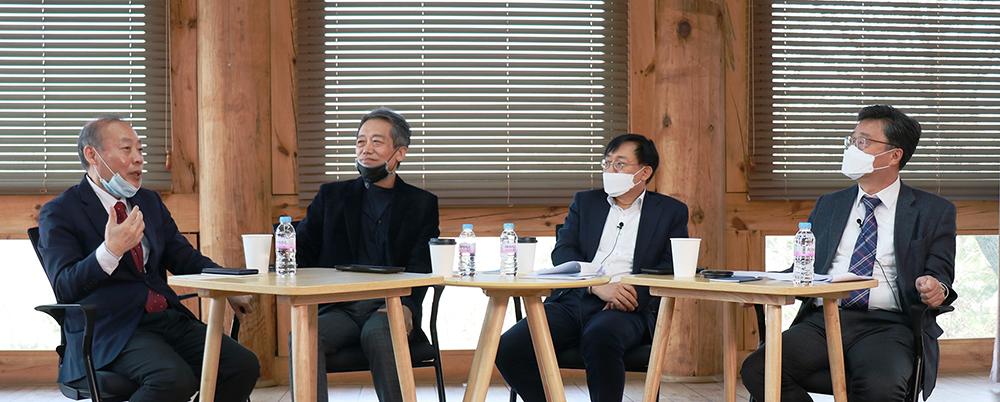
“Problems that affect other people ultimately end up coming back to us”
Kim Won-soo = If political considerations take precedent when we face a crisis, it is easy to fall into populism. People are easily tempted to find a scapegoat. When it comes to responding to the global crisis that COVID-19 has brought about, the most fundamental question is whether we can avoid going down the path of scapegoating and populism. South Korea needs to think about the role it can play in this respect. We are in the best position to speak about the dangers of following this path. South Korea has done a good job testing both citizens and foreign nationals without any discrimination. There is no such thing as a perpetrator when it comes to the virus. We are all victims. This is why it’s important to prevent the kind of populism that tries to divert blame towards an unwarranted target. The international community needs a coordinated response, and human-centric values and the inclusivity to accommodate differences lie at the heart of this.
It’s wrong to turn our backs and ignore the problems of others, because those problems will ultimately come back around to us. We shouldn’t simply sit by and watch the virus spread to the Southern Hemisphere. If we don’t help them, it will end up coming back to haunt us. Problems that affect others are something we also need to be concerned with. I think this needs to be the start of an international alliance. The biggest lesson the virus has given humanity is that no one is exempt from the impact of a pandemic, and the fate of the whole world is intertwined. International organizations need to step up and play this role. If the UN is not capable of performing this function, we need to form a new organization. While this issue has been discussed many times in the past, the virus has laid bare the lack of global governance. There are some things the WHO cannot do. When a problem breaks out in a country that is not equipped to handle it, other organizations need to get involved if we are to give international assistance.
Kim Won-soo = In the current situation, the virus is naturally evolving to sound a warning to humanity. What will we do if a group of bad actors intentionally causes something like this when technology advances further and the barriers to entry become lower? When it comes to responding to the use of chemical weapons there is a dedicated international organization. If the COVID-19 pandemic had been deliberately manufactured, it would be a completely different issue. But at present, we don’t have any systems at all to respond to something like that. Discussions need to start taking place on this. How would we respond? We need to use the lessons obtained from this virus to prepare for other possibilities, and this needs to go well beyond the current system of international organizations. South Korea could be in the best position to draw the international community’s attention to this and point out any problems, as well as push for the formation of an organization capable of responding.
“Thirty percent of core products should be made domestically”
Jeon Byeong-jo = I would like to come back to the idea of ‘hidden blessings.’ You could imagine a blessing in the trade sector. The international order established to date has been centered around the US, but with the rise of China to create a dual hegemony, the US has started to destroy the very order that it created. It appears that the COVID-19 outbreak will lend further weight to this trend. A disaster such as COVID-10 could happen again at any time. When it comes to core industries, South Korea should be adopting a more security-centric approach rather than focusing on the benefits of international division of labor. The days of chasing after profits are now over. We have never felt the effects of downsizing risks to this extent. Thirty percent of production should be domestically based. In terms of industrial structure, others have now caught up to many of the companies in South Korea’s core industries. South Korea ranks third in terms of technology patents, which is quite formidable. We should take this opportunity to eliminate economic bubbles and concentrate the resources we have in innovative industries. The global value chain also needs to be reexamined. In order to maintain our manufacturing capacity, we need to begin converting antiquated things to digital. This is also the end of the low cost mass production model.
“We should consider international cooperation when it comes to reducing reliance on China”
Kim Hee-su = Until now, we have supported China based on the belief that if the Chinese economy grew as a result of free trade, democracy would develop alongside it and China would adopt values such as respect for human rights, but this has not happened. In fact, seeing China attempting to lead the global hegemony gives a belated sense of regret. Trump’s strategy for responding to this is not without cause. Both Democrats and Republicans are concerned about China. It appears that globalization will regress through the COVID-19 outbreak as more attention is channeled towards domestic production systems and the problems that have become apparent with supply chains. We need to reduce our reliance on China, but achieving this while also growing the global economy could be difficult. At the very least, it will require international cooperation between countries. Countries outside of China will have to create some new form of leadership, so what we need is discussions between nations that believe in freedom and human rights on coming together to revive systems of the past. However, if the virus causes other countries to conclude that systems such as China are more efficient at dealing with threats, it will be a much bigger problem. We need to demonstrate that we can effectively respond to complex problems under the banner of the free trade system. Second, once South Korea has established domestic systems, it is important that we share the lessons we have learned with the world by creating best practices. If South Korea can use this as the basis for taking the initiative in stressing the importance of international cooperation, it would produce more stability.
Online education should be accepted as regular courses
Kim Hee-su = The way we work won’t revert back to the past either. Since we have experienced strong learning effects, we won’t go back to the past, but that doesn’t mean we can completely avoid switching to a non-face-to-face culture. South Korea has very high population density, so it is an environment in which people don’t feel the need for non-face-to-face communication. Working at home will probably become more widespread for large corporations, white collar workers and professionals. Meetings can be conducted remotely through software such as Zoom, and the range of solutions offered by companies such as Microsoft has grown. If these tools are further improved, they will become more widely used. We will see greater development in terms of price and convenience, and this will promote greater use of non-face-to-face technologies. We need to make society more efficient through this. There should be institutional support for establishing these systems in important sectors of society, such as pandemic preparedness, accepting online education as regular courses, and implementing telemedicine.
< Copyright holder © TAEJAE FUTURE CONSENSUS INSTITUTE, Not available for redistribution >

